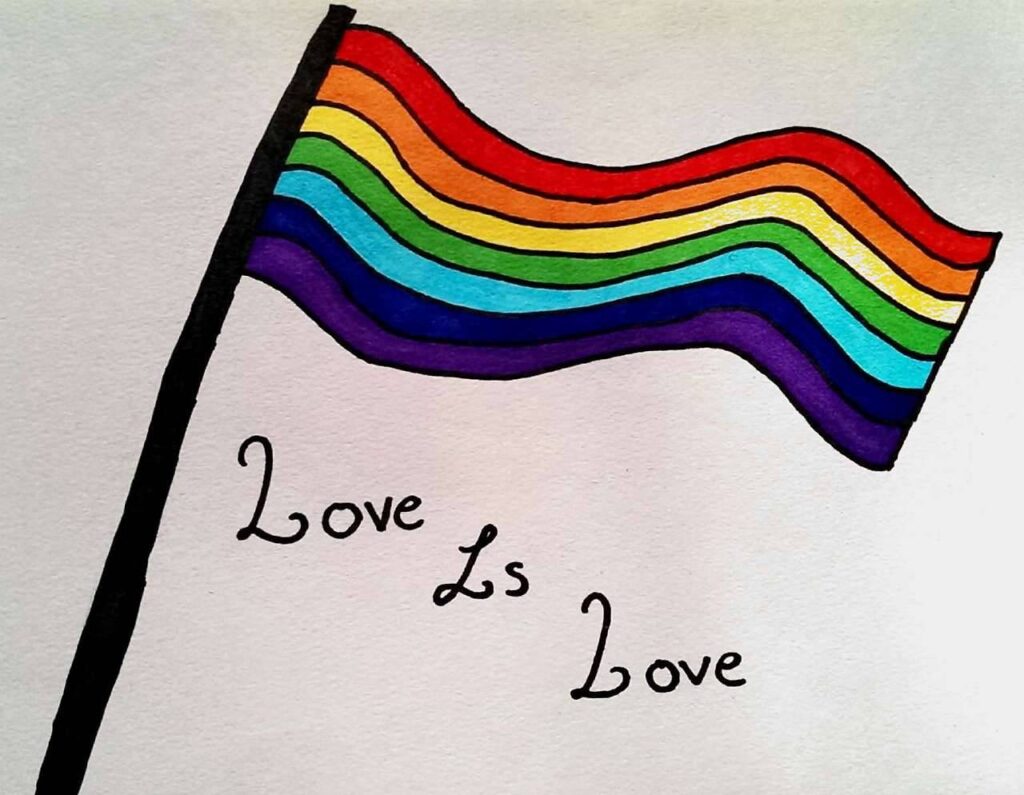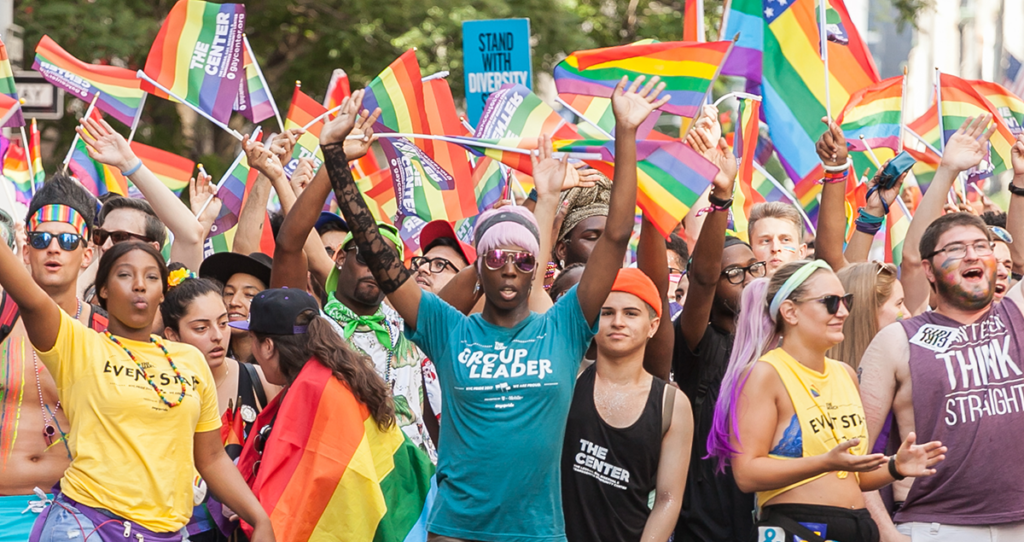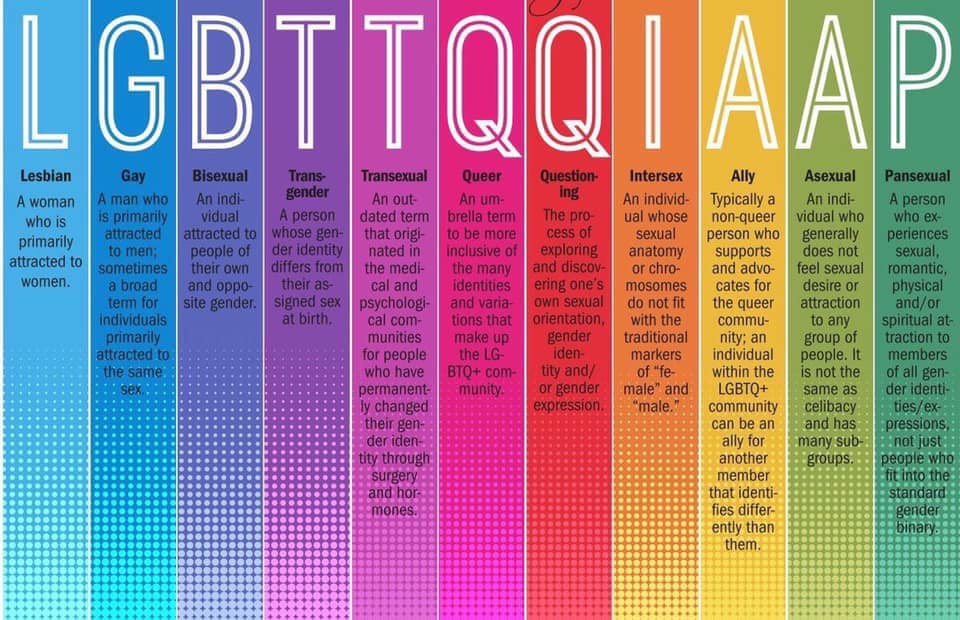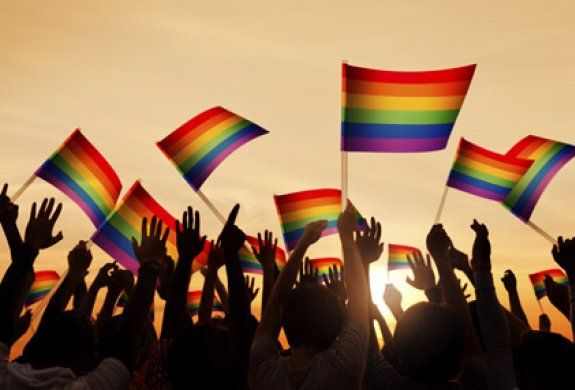By Konstantina Kerpinioti,
It is widely known that people who belong to the LGBTIAP+ community deal with a lot of problems on a daily basis, due to many individuals’ incapacity to accept anything that is out of the ordinary. Of course, nowadays, LGBTQIAP+ community members have better treatment than before, but there is still a long path to cross till we say that these people are treated in a proper way.
First of all, before I discuss anything else about the LGBTQIAP+ community, I strongly believe that it is necessary to clarify which people belong in it, so as to inform completely about the subject. In the LGBTQIAP+ community, there are people who have irrelevant sexual identity to the gender they were assigned at birth or people who have a different sexual orientation than the most common one, which is to be a straight person. So, a person who is a member of the LGBTQIAP+ community can be:
- Lesbian: A woman who is attracted either physically or romantically to other women. Some lesbians prefer to refer to themselves as homosexual or gay women.
- Gay: This term is used to refer to people (men and women) who are attracted physically and romantically by people of the same gender. Sometimes, lesbian is the preferred term for women.

- Bisexual: A person who is attracted physically and romantically to the same or different gender. Over the course of a person’s lifetime, they may encounter this attraction in a variety of ways and to varying degrees. It is not necessary for bisexual people to have had specific sexual experiences in order to be bisexual; in fact, they can be identified as bisexual without having any experience in this particular field.
- Transgender: This term is used in order to describe those individuals whose gender identity and/or gender expression is not associated with the sex they were assigned at birth. Many transgender people use hormones to form their bodies according to their gender identity. Others undergo surgery as well. However, someone needs to know that not all transgender people can follow these steps, therefore gender identity is not related to physical appearance or medical procedures.
- Queer: A term that is used to describe sexual and gender identities other than straight and cisgender (a term which is used for a person whose sense of gender identity corresponds with their birth sex). The term “queer” can refer to lesbians, gays, bisexuals, and transgender persons. Queer is sometimes used to show that sexuality and gender are not just simple cases and something stable. Nevertheless, this term is not universally accepted even within the LGBTQIAP+ community.
- Questioning: This term describes people who question their sexual orientation or gender identity.

- Intersex: Intersex refers to a group of circumstances in which a person is born with reproductive or sexual anatomy that does not appear to match the traditional classifications of female and male. For example, a person may be born with primarily male-typical anatomy on the surface but female-typical anatomy on the inside. Alternatively, a person may be born with genitals that appear to be somewhere in the middle of the male and female varieties. For instance, some people are born with mosaic genetics, which means that some of their cells have XX chromosomes and others have XY chromosomes.
- Asexual: In relationships, someone who is asexual has little to no sexual desire or connection. Sexual actions may or may not be performed. Within the asexual subculture, he is known as “ace”. Romantic, sexual, physical/sensual, emotional, aesthetic, and platonic attraction are only a few examples. Demisexual and graysexual identities are examples of identities that lie in between asexual and sexual.
- Pansexual: Lastly, this term refers to someone who is attracted to persons of all gender identities and expressions has this sexual orientation.
Should we take into account the past, we will see that the LGBTQIAP+ community has made a lot of steps forward and has earned many people’s respect. Social media and the Pride movement contributed significantly to this progress by providing many individuals with the opportunity of expressing themselves and informing other people about their identities. Also, gay couples and kisses in movies are a way for many people to understand that being gay is normal like straight people, and stop considering them strange and problematic.

Nevertheless, the issue has not been tackled radically worldwide. Nowadays, modern society (a significant part of it at least) faces the LGBTQIAP+ community’s members as problematic individuals and as an example to be avoided. Our country, Greece, due to the fact that it is a close-minded society, is not ready to accept difference. In America and West Europe, the situation is somewhat better, but not to a satisfactory level. Many members of the LGBTQIAP+ community that express their gender identity and sexual orientation are stigmatized by society and become victims of bullying and ridicule.
Some of them reach the point of even losing their jobs and being far away from their family and friends, because they may not be acceptable there. As a result, a lot of LGBTQIAP+ community members are oppressed and hide their true identity by behaving as being someone else, due to the fact that they are shy and scared enough to talk about it. Furthermore, many people act hypocritically and lie about the fact that they accept LGBTQIAP+ individuals.
All these unacceptable behaviors are not allowed in the 21st-century community, where there is talk of progress and prosperity. Many may think that modern society is quite open-minded in such matters, but there are still a lot of individuals who have backward opinions. So, the beginning of a better attitude towards the members of the LGBTQIAP+ community is to admit that we have not yet learned to accept something completely different from ourselves. In general, do not forget that the first step in solving a problem is to realize its existence. The next step is to broaden our horizons and be completely informed about such social issues. Sometimes, a hostile attitude is due to the lack of enlightenment.
Furthermore, we should take care of our own lives and stop criticizing others and always have something to say about anything they do or tell. Sexual identity and sexual life are absolutely personal: we should not be concerned about them, and there is no need to harass or criticize someone because of them. We live in a democratic society (at least we say so), so every person is free to do whatever they wish, as long as they do not harm anyone else. Members of the LGBTQIAP+ community do not hurt anyone because of their diversity, so stop commenting and trying to make them feel inferior. Just sit and think what kind of treatment you would like to have if you were in their shoes and based on that, form your own attitude accordingly. Let us all form a better future for us and for the generations to come!
References
- What is LGBTQ?, gaycenter.org, Available here
- What does queer mean?, plannedparenthood.org, Available here
- What does LGBTQIAP mean?, quora.com, Available here




